Male love and Spartan wives: the sexual life of Ancient Greece
Categories: History | Society | World
By Pictolic https://pictolic.com/article/male-love-and-spartan-wives-the-sexual-life-of-ancient-greece.htmlThe times of sexual freedoms of the Balkan Peninsula and the adjacent islands, thanks to a well-known link to the time of the Trojan War, can be determined quite accurately. Heroes of the epics Hercules, Theseus and Jason lived around the thirteenth century BC.
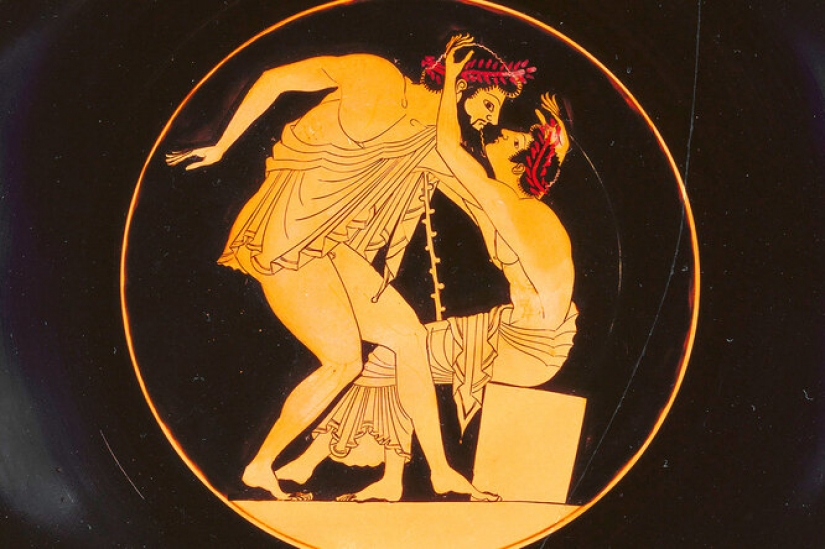 Greece of the time of the titans and heroes was a country of rather liberated morals. Sex reigned everywhere: in the underworld and sublunar. The gods of Ancient Greece were engaged in it not only for the sake of having children — the very creation of the Earth was connected with sex. But not only gods, but also people indulged in carnal love… How they did it — read in our material.
Greece of the time of the titans and heroes was a country of rather liberated morals. Sex reigned everywhere: in the underworld and sublunar. The gods of Ancient Greece were engaged in it not only for the sake of having children — the very creation of the Earth was connected with sex. But not only gods, but also people indulged in carnal love… How they did it — read in our material.
The gods of ancient Greece often came into contact with their relatives — usually brothers or sisters. However, at the beginning of all things, they did not have too many options. For example, everyone knows the myth of Persephone, who is kidnapped by the king of the underworld Hades, being at the same time, concurrently, her uncle. But that's the gods. As you know, what is allowed to Jupiter is not allowed to the bull.
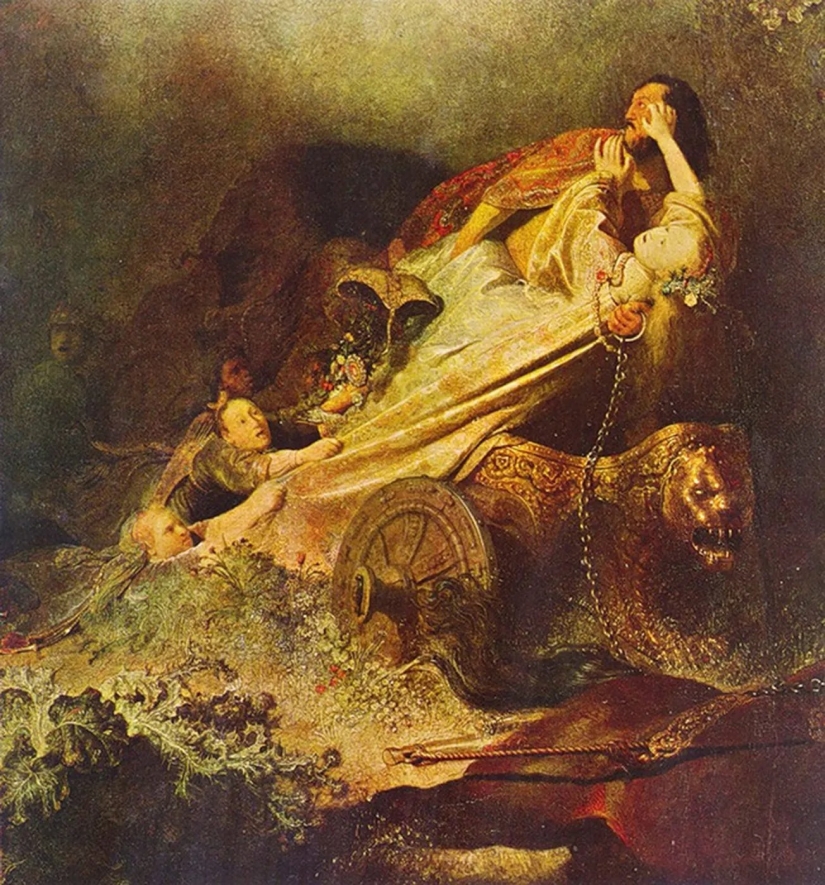
However, there is evidence that incest was treated calmly in heroic times. Homer, through the mouth of Odysseus, narrates:
Perhaps these lines tell us about the echoes of an ancient tradition. Later, however, such a custom began to be condemned. Contradicting Homer, Euripides writes that Aeolus insists that one of his daughters, having entered into an incestuous relationship, commit suicide.
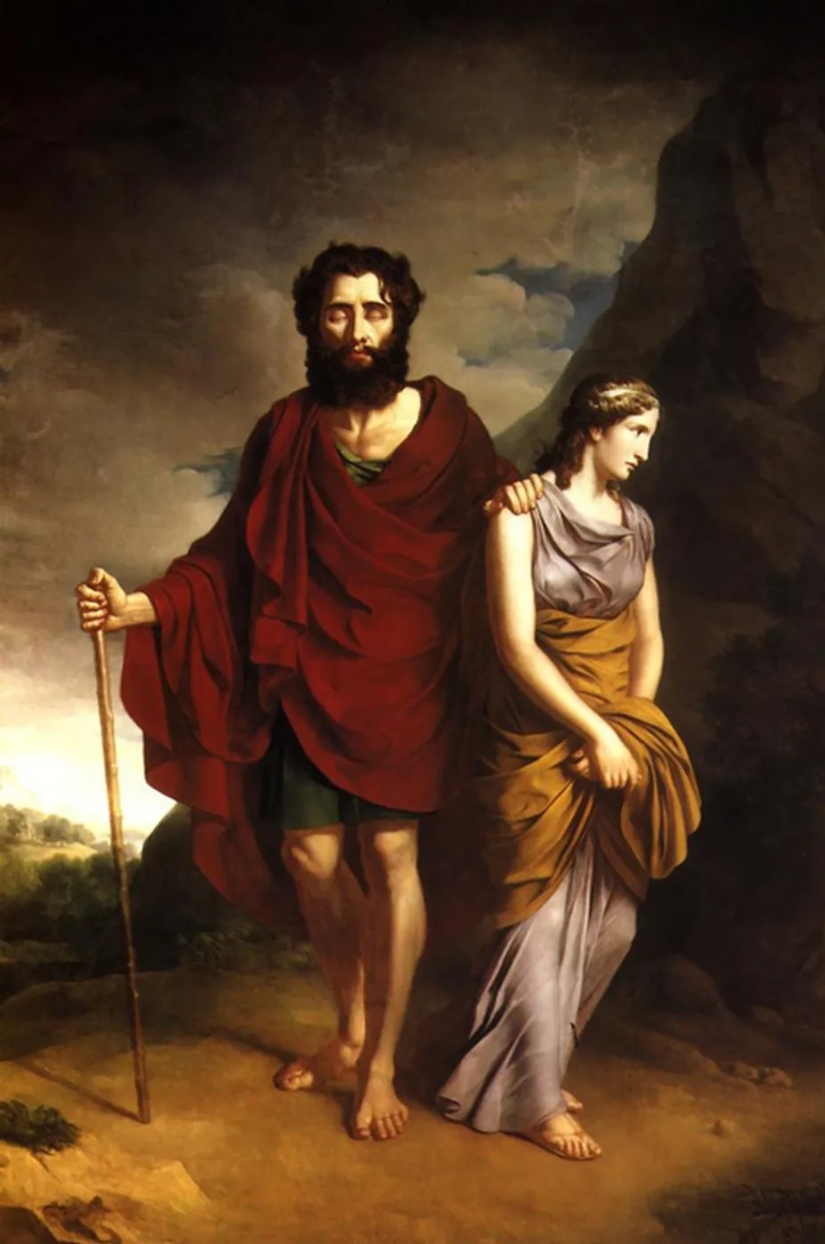
The only type of incest that has always been condemned in ancient Greece is the so-called vertical incest, sexual intercourse with one's own parents. The Theban king Oedipus, having mistakenly entered into an affair with his own mother, was forced to blind himself.
In this matter, I must say, the Greeks were also very loyal. The woman's vocation was to give birth to children. If this could not be achieved with her husband — it was necessary to try other options.
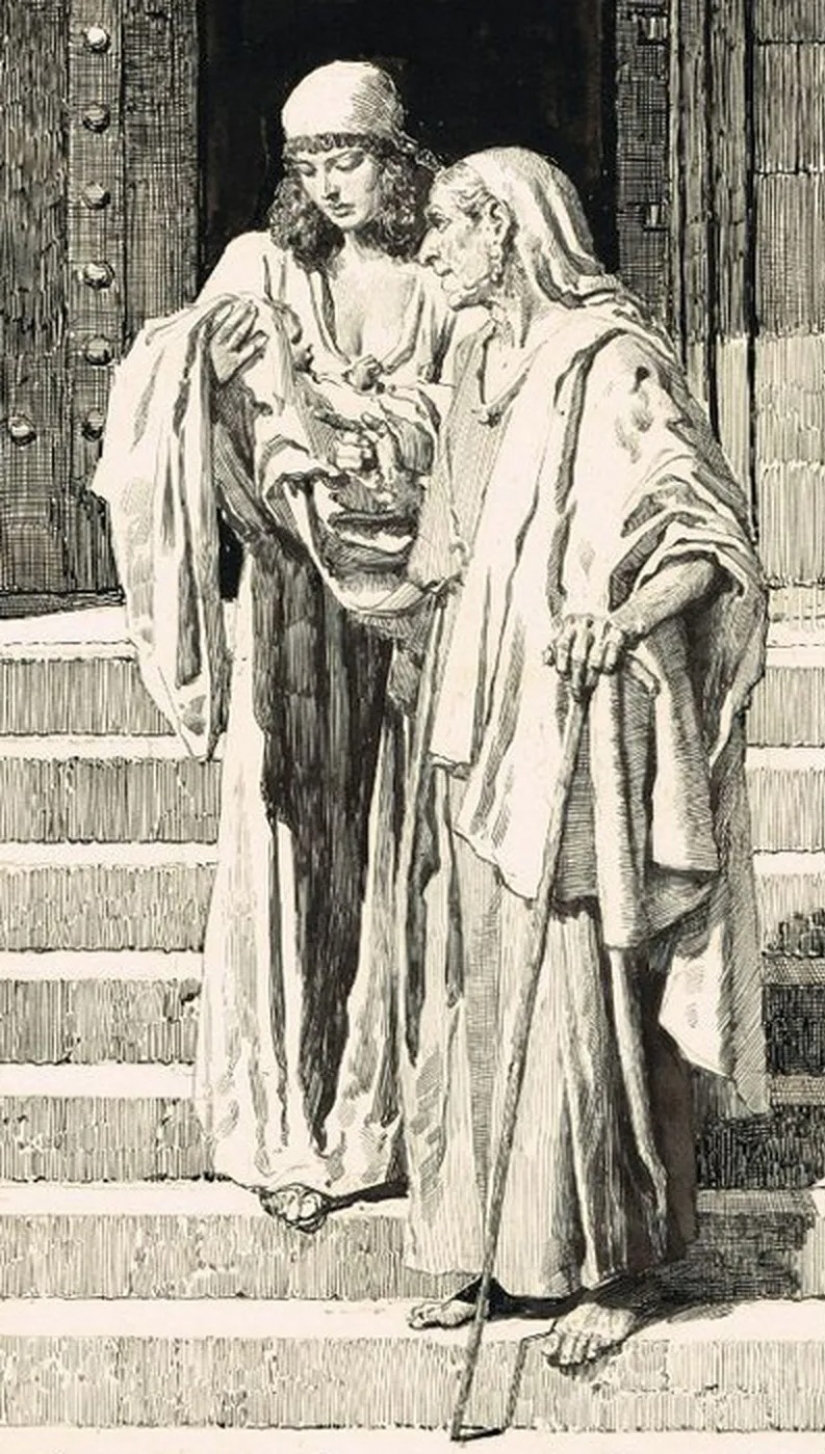
Virginity before the wedding, although desirable, was still not put at the forefront. It is known that King Thespius, who had 50 unmarried daughters, offered them all to Hercules, so that each would give birth to a child.
And if this story can be attributed exclusively to mythology, then the story of King Ariston, who ruled in Sparta of the V century BC, there is no doubt. It was known about the ruler that he was infertile, and when his third wife gave birth to a child, the king himself doubted his paternity, but eventually recognized the child.
After the death of his father, Demaratus ascended the throne, but the population had serious doubts about the legality of such a ruler, and then the bribed pythia announced that Demaratus was not the son of Ariston. Then Demarat's mother confessed that that night, under the guise of a spouse, the ghost of a divine hero entered her bedroom and conceived a child for her.
I must say that in heroic times, adultery, although it was condemned by patriarchal Greeks, was not an indelible stain on the reputation of the wife.
Homosexual relations between men were encouraged in Greece of all times, although they reached their heyday during the Athenian democracy. Plato explains in the Feast that the reason for everything is that when the gods created people, they consisted of two parts, as it were. Since the creature turned out to be ridiculous, the gods decided to separate them. Accordingly, each person has his own half: at the same time, it is not at all necessary that the second half of a man should be a woman.
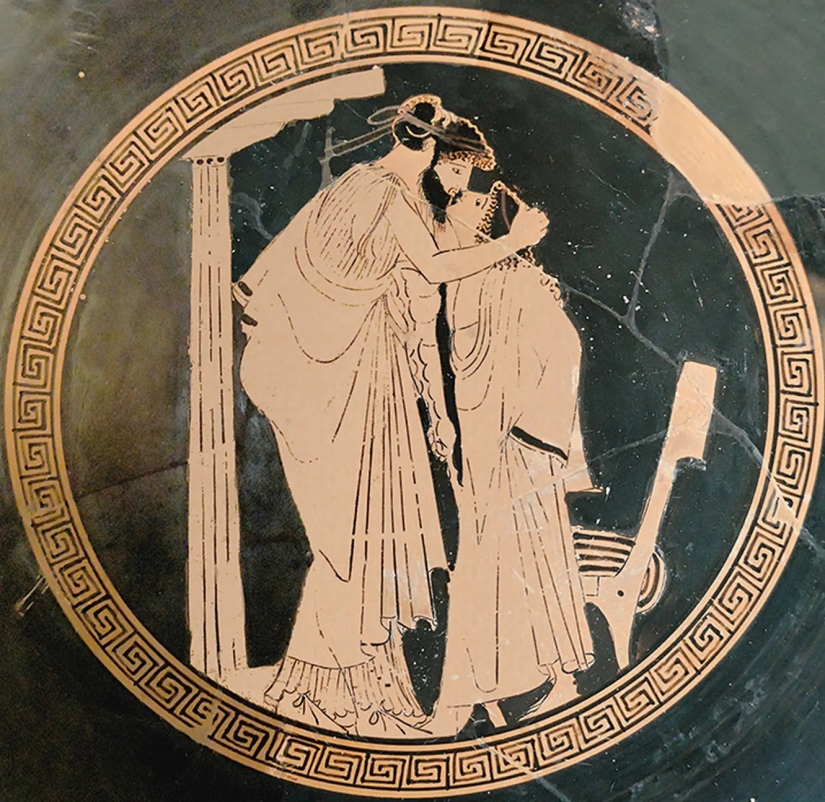
On the contrary, Plato called men who are greedy for women "fornicators", and women of this breed, he believed, are dissolute.
In Corinth, in the VII century AD, there was a custom of kidnapping a boy by an adult man. An older friend introduced a teenager to a male union, taught him military skills and initiated his sexual life. Such relations were quite honorable in nature.
According to Athenian custom, however, communication with boys was considered unworthy — only with young men. Although male prostitution existed, according to the law, a free-born Athenian could not engage in such a business. This was considered the lot of foreigners and Meteks.
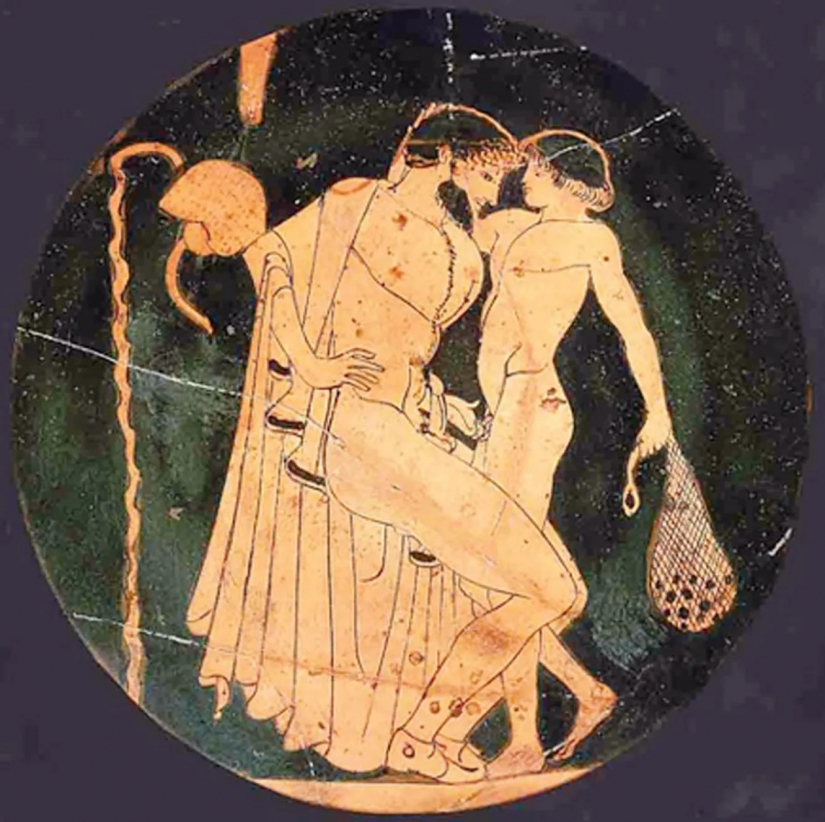
Some ancient philosophers at the end of their lives revised their position on this issue, so Plato in his" Laws " insisted that there should be no sexual connection between men and young men — only spiritual. Whatever it was, men's love was considered much more pure and sincere than women's. Lucian of Samosata in the II century AD wrote that female love is needed only as "ensuring the necessary continuity of the human race".
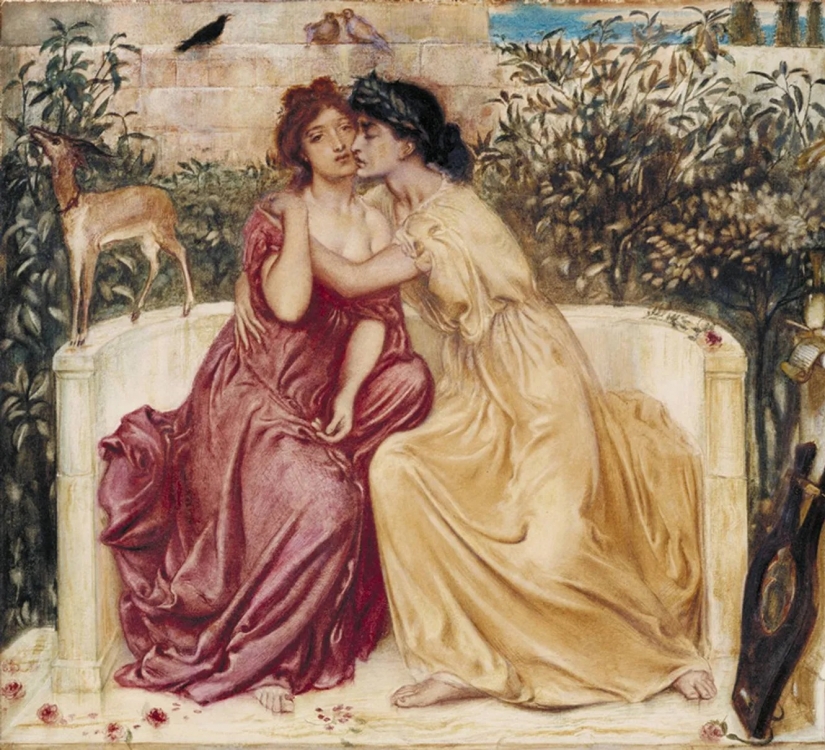
As for female same-sex love in ancient Greece, little is known about it. For example, the Greeks honored the poetess Sappho, but she was rather an exception to the rule, the "tenth muse". Lesbian love, as well as the relations of women in general, was not in the interests of the Greeks.
Sparta can be put in a separate history, because its mores were very different from the mores of the rest of Greece. The laws of Sparta were formed under the influence of the semi-mythical legislator Lycurgus between the X and VIII centuries BC.
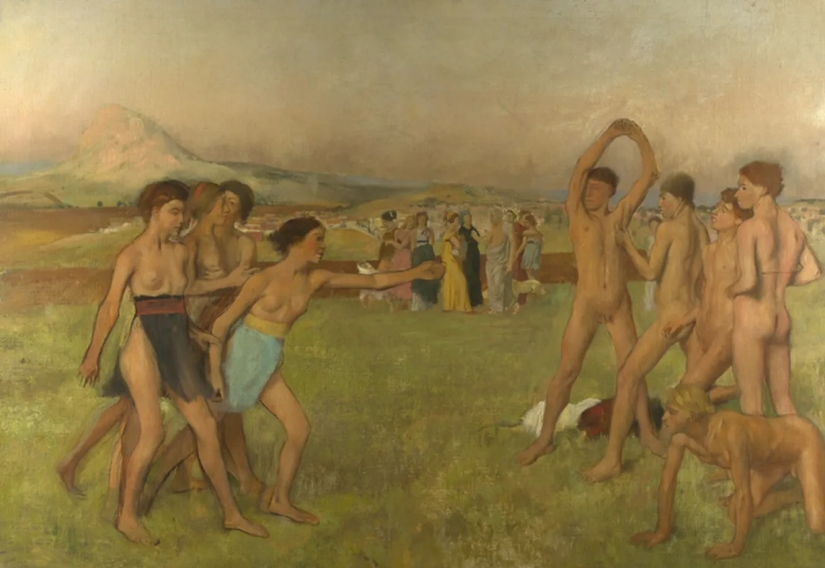
It was the duty of every Spartan to produce healthy, strong offspring. In order to seduce men, special processions were organized, where girls performed naked, demonstrating their beauty and strength. If a man for some reason did not want to marry, he was not allowed to go on holidays (and this was an important part of social life) and was forced to walk around the city naked in winter, singing a shameful song.
Lycurgus forbade giving a dowry for brides, so that both the poor and the rich girl had a chance to get married. The couple's family life was very unusual. Here is what Plutarch writes:
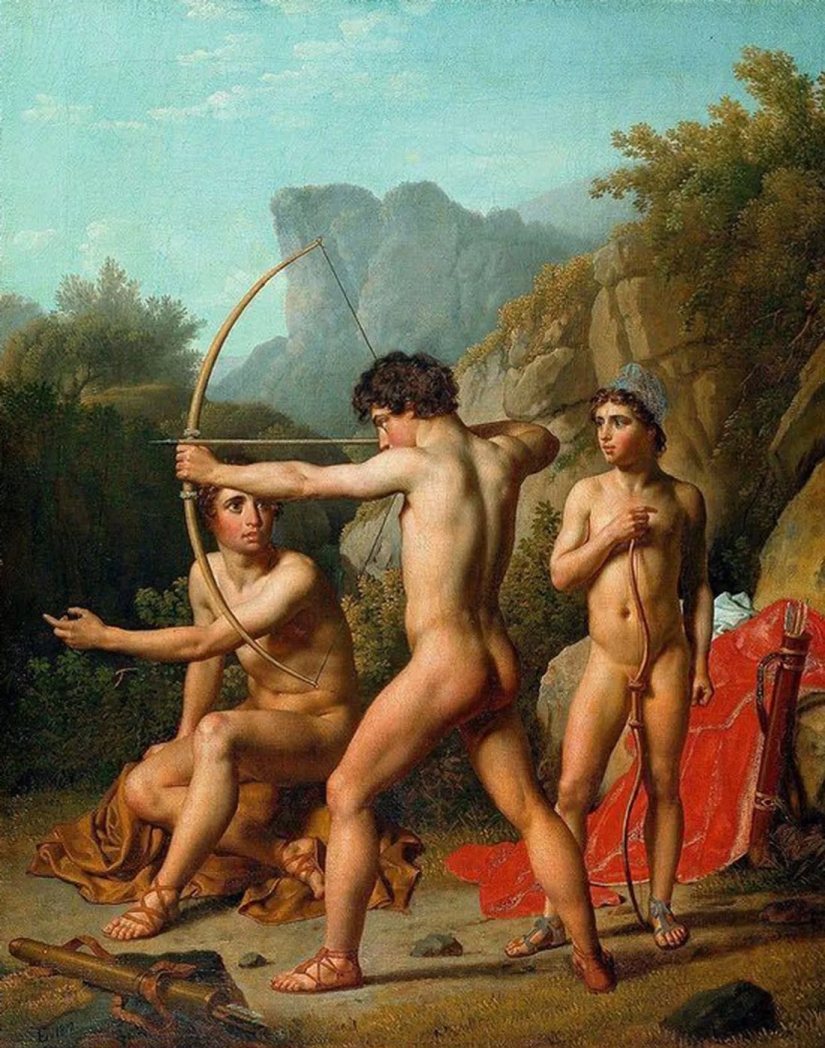
The bride was given quince to eat before the first night, which was then considered the strongest aphrodisiac.
And so it went on for a very long time, until the Spartan turned thirty years old — then he could settle with his wife and children.
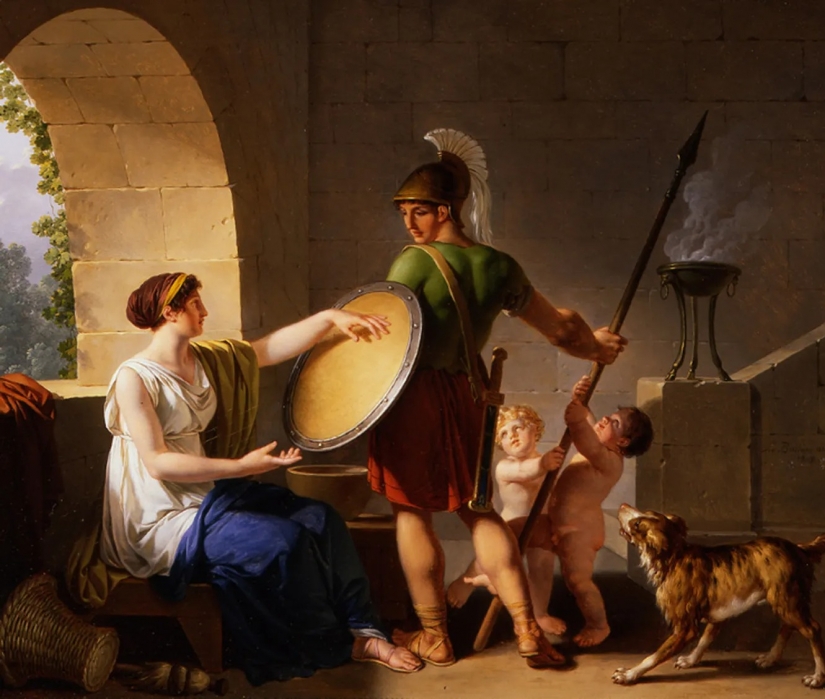
Lycurgus believed that women should not belong to their husband, but to the fatherland. So, a woman, with the permission of her spouse, could enter into a relationship with any man who could give healthy offspring. Jealousy was condemned and considered something shameful among the Spartans.
Keywords: Greece | Antiquity | Wives | Sex life
Post News ArticleRecent articles

It's high time to admit that this whole hipster idea has gone too far. The concept has become so popular that even restaurants have ...

There is a perception that people only use 10% of their brain potential. But the heroes of our review, apparently, found a way to ...
Related articles

One of the most interesting documents left by the ancient Greeks is a work called "The Anabasis of Cyrus", translated from the ...

Colin and Kristin Poole are an amazing creative family. Colin is a world-renowned artist, and his wife Kristin is a wonderful ...

After centuries of tradition and fashion are changing. Once our ancestors in order doing that now would be shot down us off. About ...

New Year's is a time to surprise and delight loved ones not only with gifts but also with a unique presentation of the holiday ...